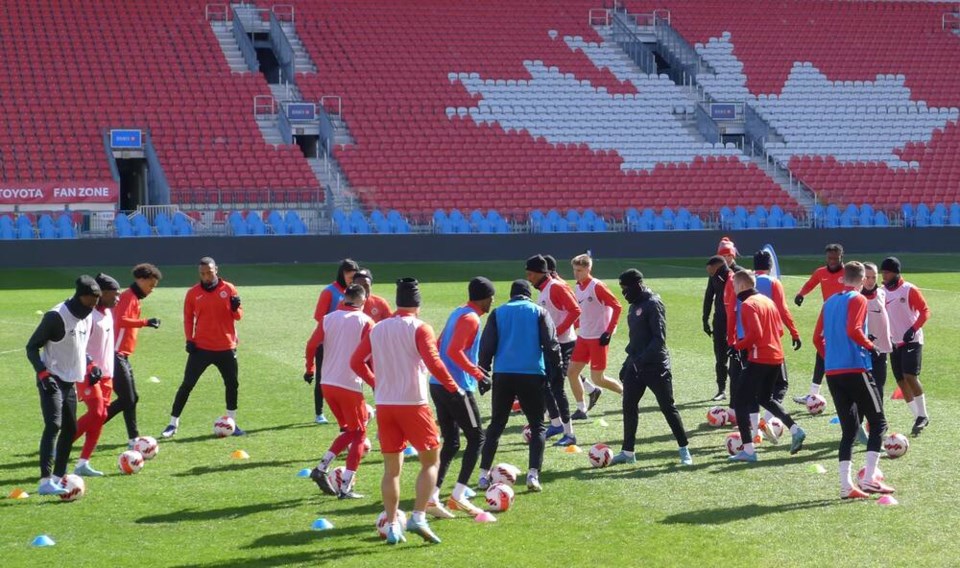England training at Centennial Stadium? How about Germany at Royal Athletic Park or Brazil at Starlight Stadium? It could happen.
The Island’s chances of hosting pre-World Cup soccer training camps and exhibition games in 2026 were boosted immensely by both B.C. Place in Vancouver and Lumen Field in Seattle being named Thursday among the 16 venues that will host games.
“We will absolutely and vigorously be pursuing the opportunity to have teams come here,” said Keith Wells, executive director of the Greater Victoria Sport Tourism Commission.
“There is going to be a real push to have teams set up here. We have a good relationship with Canada Soccer.”
Victoria was among 52 training-base options across the continent presented to FIFA in the official bid book put forward by the U.S./Canada/Mexico United Bid, which in 2018 won the right to host the 2026 World Cup.
“Nothing has changed in that regard,” said Wells.
Two venues — Centennial Stadium at UVic and Royal Athletic Park — are mentioned in the United bid book. They could serve as pre-World Cup training base camps for national teams that will be playing at B.C. Place or Lumen Field. Wells also pointed to Starlight Stadium in Langford, which will have 10,000 seats by then, but will need to have a grass field put in. He said there will be funding for those sorts of improvements. “There will be provincial money to make sure the World Cup benefits all parts of B.C.,” said Wells.
This has been a whiplash turnaround. The B.C. government this year reversed its much-criticized initial decision in 2018 to not pursue hosting World Cup games.
“We have been told by the province that it is looking for three World Cup satellite training sites, two on the Lower Mainland, and one on the Island,” said David Lawes, president of the Victoria West soccer club, which plays at Royal Athletic Park.
Canada Soccer said in a statement: “The expanded format of the FIFA World Cup 2026 [from 32 to 48 teams] provides additional opportunities for Canadian cities to host international matches in the four-year runway to the competition as well as team base camps during the FIFA World Cup 2026.”
Negotiations with teams playing in the Seattle group would have to go through channels other than the provincial government or Canada Soccer.
“But I’m sure if, say, Italy was put into the Seattle group, and wanted their pre-camp in Victoria, their camp would be in Victoria,” said Lawes. “We are perfectly located for the Vancouver and Seattle venues and have the ideal city and sporting culture for it.”
Shawnigan Lake School has hosted numerous Canadian national team rugby and rowing camps as well as Vancouver Canucks development camps and would provide an enclosed environment complete with fields, dorms and dining hall, which the heavyweight national sides such as Germany and Brazil prefer, because it makes security easier.
Pre-World Cup training camps are complex operations often featuring big-name professional players who are with their national teams for about a month before the competition starts. Most national teams prefer to establish their pre-World Cup training compounds away from their first-round group-game cities but in nearby regions. That makes the Island strategically situated for both the Vancouver and Seattle groups.
The cost of B.C. hosting five World Cup games, including ancillary functions such as training camps, has been pegged at $240 million to $260 million.
Melanie Mark, B.C. minister of Tourism, Arts, Culture and Sport, recently stated: “Destination B.C. and B.C. Stats estimated hosting [World Cup games] would bring in more than $1 billion in new revenue for B.C.’s tourism sector during and in the five years that follow the event. B.C. and the rest of the world has been hit hard by the pandemic. Hosting the FIFA World Cup 2026 would serve as a beacon for B.C.’s tourism industry, as it recovers from an incredibly challenging two years.”
There will be 80 World Cup games in 2026, of which 60 will be hosted in the U.S., and 10 in each of Canada and Mexico in the first expanded 48-team tournament.
Toronto was the other Canadian host city selected. The U.S. host venues are Seattle, San Francisco, Los Angeles, Kansas City, Dallas, Atlanta, Houston, Boston, Philadelphia, Miami, and New York/New Jersey. The Mexican sites are Mexico City, Monterrey and Guadalajara.
cdheensaw@timescolonist.com
• To comment on this article, write a letter to the editor: letters@timescolonist.com


